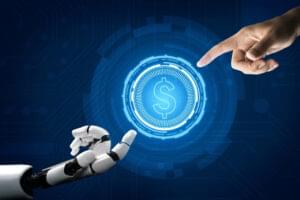Digital firms leverage technology to create new client experiences, business models, and internal capabilities that support their core activities. The phrase refers to both traditional players and brands that solely operate online that are utilizing digital technologies to alter their industries.
The expansion of the digital economy
People are spending more money online now, which has caused businesses to place more of a focus on digital platforms and revenue sources. People are now increasingly familiar with digital goods and services because to the rise of the digital economy, which has prompted businesses to look for new competitive advantages in the digital sphere.
However, the definition of digital business has expanded beyond only online retail; according to Accenture, “digital firms develop competitive edges based on specific combinations of digital and physical resources.” They take action in a way that gives them a competitive advantage that others cannot.
The Basics of a Digital Business
Industry professionals have differing opinions on what exactly constitutes a digital firm. According to Gartner, the development of new value chains and commercial prospects that traditional organizations are unable to provide constitutes digital business. Digital “should be perceived less as a thing and more as a way of doing things,” according to McKinsey.
The majority of digital organizations fall into one of these two categories: either they concentrate on developing their core business at new frontiers or they utilize digital technology to boost growth, revenue, and performance in ways that were not conceivable using conventional business models.
Reviewing common aspects of digital business and contrasting them with the company’s own business models may be useful for businesses. These are a few of the tendencies that set digital procedures apart from conventional ones.
- Use current technology
- Accept the idea
- Investigate novel business concepts
- Use current technologies to reduce expenses, collect data, and improve client experiences. Digital firms put a lot of emphasis on the competitive advantages that technology gives them, whether it’s cutting costs or giving customers new benefits.
- Accept the idea of digital transformation and the corresponding cultural changes. The adoption and management of digital services may require organizational transformation, particularly if new roles are created and IT is given more authority over strategic decisions.
- Investigate novel business strategies that place the consumer experience at the heart of digital strategy. A superior customer experience is frequently worth more to consumers, making it a crucial differentiation in the digital economy. Consumers are increasingly appreciating digital interactions, therefore organizations will eventually concentrate on offering digital services in ways that reflect their increased emphasis on client satisfaction.
E-business vs. digital business
E-business often doesn’t alter existing business models; instead, it only uses technology to increase efficiency or get rid of duplication. Here is where digital business differs from e-business. Online credit card application forms don’t offer a novel or distinctive experience, but they do eliminate the inefficiencies of a paper application procedure. The focus of digital business is primarily on how technology enables businesses to generate novel values and experiences that set them apart from their competitors.
Several Digital Business Models
Uber makes use of a business model that enables them to maintain comparatively low capital investments while capitalizing on the growing adoption of smartphones. An electronic version of the taxi industry would allow consumers to reserve a taxi online and possibly monitor previous trips, but the core experience would stay the same. A standard taxi firm must own and maintain vehicles as well as provide overhead to hiring and managing personnel. Because Uber is fundamentally a platform that links customers and drivers on a large scale via the internet while enhancing the experience for customers, it solidifies its position as a digital business.
A company that transitioned from e-business to digital business is Netflix. Initially, Netflix employed technology to run an inventory system and ship DVDs to subscribers, offering a more convenient service that eventually was somewhat comparable to video rental shops.
One established company that has embraced digital technology to improve visitor experiences at theme parks is Disney. The MagicBand, a bracelet that connects to sensors in the park using RFID and radio, aims to enhance five essential aspects of every Park experience: visiting an attraction, checking into a hotel, dining at a restaurant, taking a picture and emailing it to loved ones, and purchasing souvenirs.
The MagicBand is given to visitors a few weeks before their visit, and they can use it to enter the park, pay for meals and shopping, reserve rides, and view wait times in real time. In the end, visitors enjoy a seamless transition between the digital and physical worlds.
Where to Begin
The idea of digital transformation, which uses a customer-centric perspective to lead the introduction of digital technology in operational systems and business models, shares many similarities with the notion of digital business. Digital transformation is the process that businesses go through to become digital businesses.
Gartner has identified six crucial elements for creating a digital business. Due to the enormous organizational changes that digital organizations must make, the required labor could easily become burdensome. Businesses would benefit most from the knowledge and best practices that are now freely available online if priorities and milestones were clearly defined.




